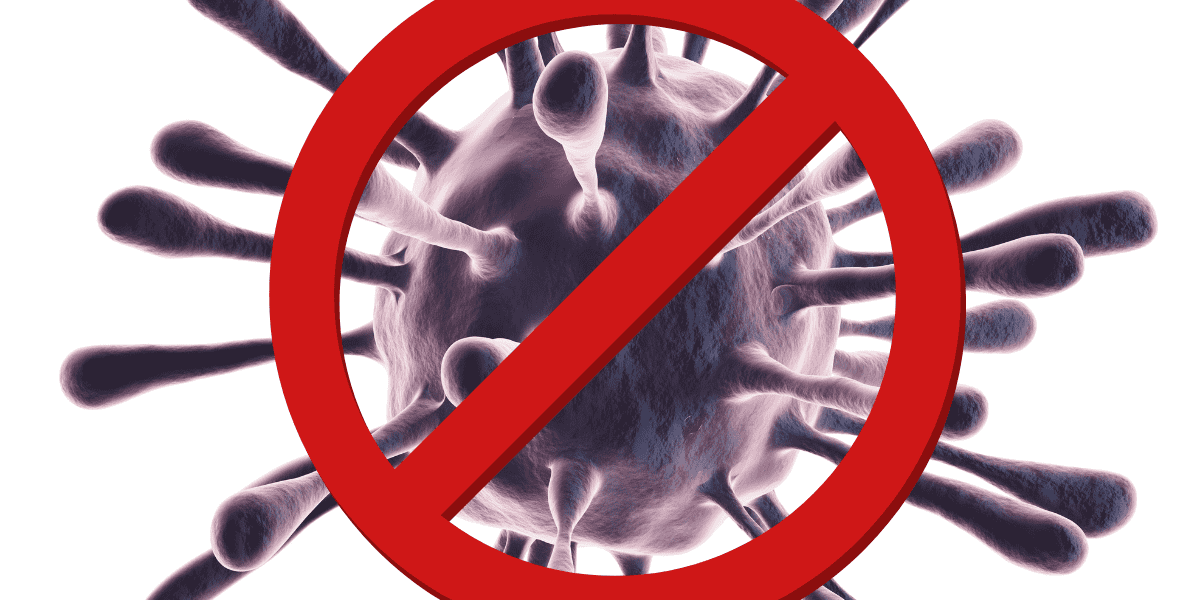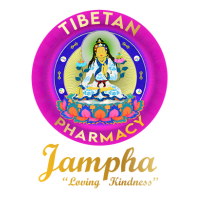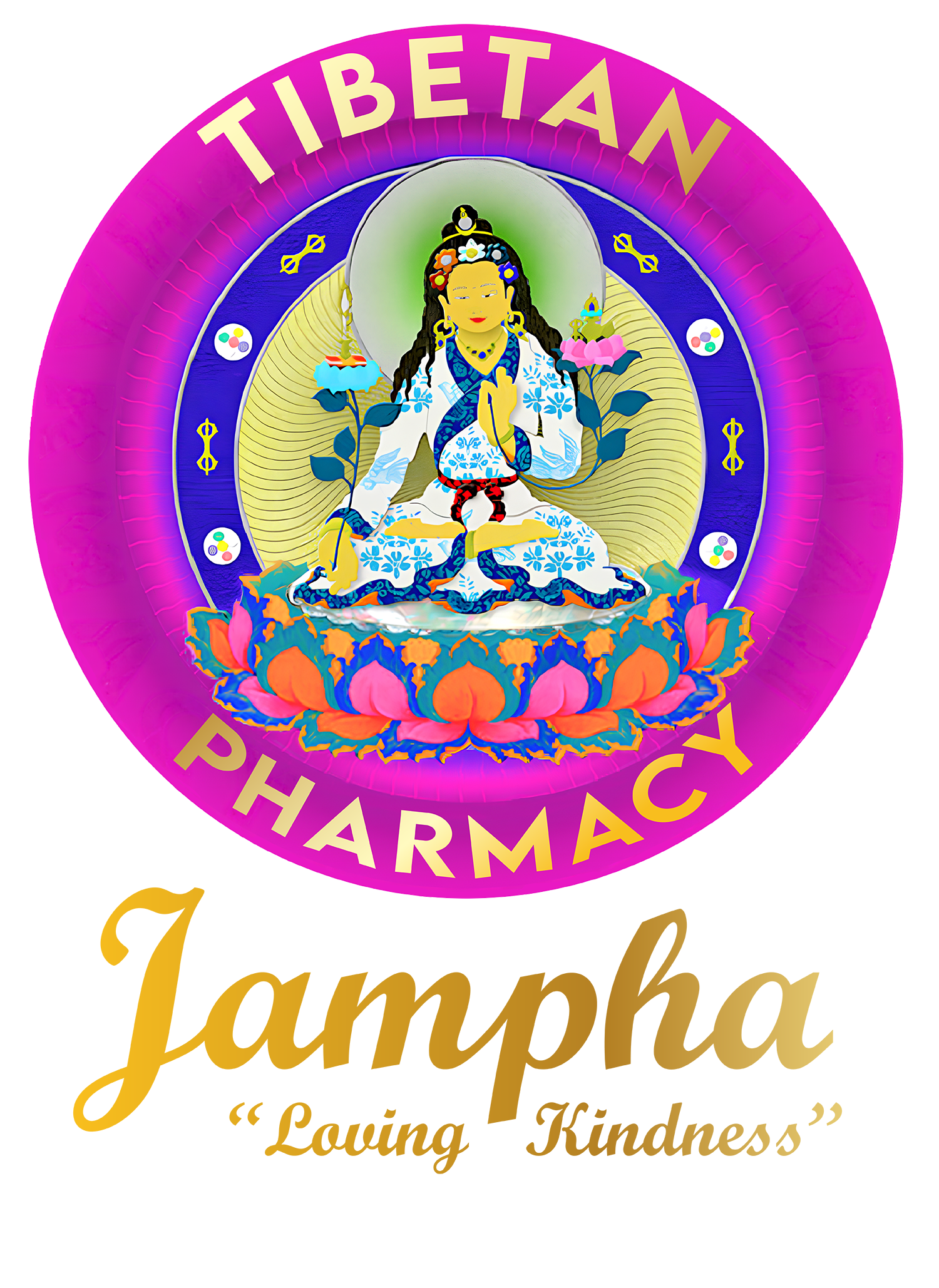Nature's Blueprint
Jampha Tibetan Pharmacy is Unlocking Plant Phyto Chemistry for DNA Repair, Telomere Protection, and Methylation Mastery
Amid the rich tapestry of plant medicine, the profound impact of certain herbs on our cellular health is becoming increasingly recognized. Many of these powerful botanicals have been used in traditional medicine for centuries, and play critical roles in supporting DNA repair and rejuvenation, protecting telomeres, activating essential enzymes, modulating epigenetic expression, preventing cancer, and promoting healthy methylation processes.
DNA Is the Heart of Cellular Health
At the heart of cellular health is the integrity of our DNA, the fundamental blueprint that governs all biological processes. Every day, our DNA is subjected to damage from environmental toxins, oxidative stress, and even normal metabolic activities. Over time, this damage can lead to mutations, cellular dysfunction, and diseases such as cancer. However, nature provides us with a variety of herbs, like Turmeric, Sea Buckthorn, and Grape Seed Extract, that are rich in antioxidants and other bioactive compounds capable of repairing damaged DNA and protecting against further harm. These herbs work by neutralizing free radicals, reducing inflammation, and enhancing the activity of DNA repair enzymes, which are vital for maintaining the continuity of healthy cellular function and promoting longevity.
Some Medicinal Herbs Safeguard Telomeres
In addition to protecting DNA itself, some herbs have the remarkable ability to safeguard telomeres, the protective caps at the ends of chromosomes. Telomeres play a critical role in preventing the genetic instability that leads to aging and disease. With each cell division, telomeres shorten, and once they become too short, the cell can no longer divide, leading to cellular aging and death. Herbs such as Astragalus and Gynostemma have been shown to activate telomerase, an enzyme that helps maintain telomere length, thus extending the lifespan of cells and protecting them from premature aging and related diseases.
Traditional Herbs Support DNA Repair
Beyond these direct protective effects, many herbs also enhance the function of enzymes that are crucial for DNA repair and detoxification. For example, Milk Thistle and Rosemary have been found to activate enzymes such as PARP (Poly ADP-Ribose Polymerase) and phase II detoxification enzymes. These enzymes play a pivotal role in repairing DNA damage, eliminating harmful toxins, and preventing the mutations that could lead to diseases like cancer. By boosting the activity of these enzymes, these herbs contribute to a more resilient and self-healing cellular environment.
Healing Herbs Modulate Our Epigenetic Expression
Another fascinating aspect of these herbs is their ability to modulate epigenetic expression. Our genes are not static; they can be turned on or off in response to environmental factors, including diet. This process, known as epigenetic modulation, is influenced by certain herbs like Green Tea and Ashwagandha. These botanicals can alter the expression of genes involved in DNA repair, inflammation, and cellular defense, thereby helping the body adapt to environmental challenges and potentially reverse harmful genetic changes. This modulation allows for a dynamic response to stressors, enhancing overall cellular health and longevity.
Enhancing DNA Repair Helps Prevent Cancer
Cancer prevention is one of the most significant benefits of these herbs. By enhancing DNA repair mechanisms, reducing oxidative stress, and modulating gene expression,
herbs such as Saffron, Rhodiola, and Bacopa help reduce the risk of mutations that could lead to cancer. Moreover, their anti-inflammatory and immune-supporting properties create a healthier cellular environment, further lowering the risk of cancer development. These herbs act as a natural line of defense, helping to maintain cellular integrity and prevent the onset of chronic diseases.
Finally, herbs like Amla and Neem support methylation, a key biochemical mechanism that affects DNA synthesis, repair, and gene expression. Proper methylation is crucial for turning genes on and off as needed, ensuring that cells function optimally and reducing the risk of abnormal cell growth. These herbs provide the necessary nutrients and antioxidants to promote healthy methylation patterns, thereby contributing to overall genetic stability and cellular health.
Medicinal Botanicals Support Lifelong Vitality
Through their combined synergistic effects, these botanicals offer not just a path to healing but a phytochemical empowering blueprint for achieving lifelong vitality, ensuring that our cells remain healthy, our DNA intact, and our bodies resilient against the challenges of aging and disease. Jampha Tibetan Pharmacy skillfully orchestrates plant phytochemistry for protecting telomeres, activating key enzymes, modulating epigenetic expression, preventing cancer, and ensuring proper methylation, they empower the body's innate ability to heal, protect, and thrive.
Jampha Uses These Herbs in Our Tibetan Infusions
The medicinal plants used in creating the Tibetan Pharmacy Infusions are well-known for supporting DNA repair and rejuvenation, offering potent antioxidant, anti-inflammatory, and adaptogenic properties that contribute to maintaining DNA integrity and promoting cellular health. Because of extensive scientific research, validation of traditional uses, mechanistic insights into how they influence DNA repair pathways, their role in preventive medicine, and the widespread promotion of these benefits in health supplements and media.
Here are 25 notable examples of over 160 botanicals used in the creation of Jampha’s Tibetan Medicinal Infusions. Among the many qualities and benefits these herbs offer, their phytochemicals have been studied for their ability to support DNA repair and rejuvenation. Jampha Tibetan Pharmacy’s Medicinal Infusions - Blue Lotus Peacock, Turquoise Dragon, LyFuMo, White Tiger. Maithuna Prana and White Elephant all include the organic plant phytochemistry that supports DNA repair and rejuvenation, protecting telomeres, activating key enzymes, modulating epigenetic expression, preventing cancer, and ensuring proper methylation.
Turmeric (Curcuma longa)
- Key Phytochemicals: Curcumin
- Mechanism: Curcumin is a powerful anti-inflammatory and antioxidant compound that modulates multiple cellular pathways involved in DNA repair. It enhances the activity of DNA repair enzymes like PARP (Poly ADP-Ribose Polymerase) and reduces reactive oxygen species (ROS), which can cause DNA mutations. Curcumin also influences epigenetic modulation by affecting the expression of genes responsible for cellular defense and longevity. Additionally, curcumin helps in maintaining healthy methylation patterns, contributing to genomic stability.
- Benefits: Supports DNA repair and rejuvenation, reduces inflammation, enhances antioxidant defenses, promotes healthy methylation, and may prevent cancer by reducing mutations.
Sea Buckthorn (Hippophae rhamnoides)
- Key Phytochemicals: Omega-7 fatty acids (Palmitoleic acid), Flavonoids, Vitamin C, Carotenoids
- Mechanism: Sea Buckthorn is rich in antioxidants, including flavonoids and carotenoids, which help neutralize free radicals that can cause DNA damage. The high concentration of omega-7 fatty acids supports the integrity of cell membranes, protecting cells from oxidative stress. Sea Buckthorn also promotes telomere protection by supporting cellular integrity, while its vitamin C content enhances collagen synthesis and supports DNA repair mechanisms. Additionally, its antioxidant properties contribute to cancer prevention and epigenetic modulation.
- Benefits: Enhances DNA protection and repair, supports telomere integrity, promotes cellular regeneration, boosts immune function, and supports cancer prevention.
Amla (Phyllanthus emblica)
- Key Phytochemicals: Vitamin C, Gallic acid, Ellagic acid, Tannins
- Mechanism: Amla, also known as Indian Gooseberry, is exceptionally rich in vitamin C and other potent antioxidants like gallic acid and ellagic acid, which protect DNA from oxidative damage. These compounds help to neutralize free radicals, reducing the oxidative stress that can lead to DNA mutations. Amla also supports telomere protection and has been traditionally used to enhance longevity by promoting detoxification and supporting healthy methylation processes. Its antioxidant properties make it valuable for cancer prevention and overall cellular health.
- Benefits: Strengthens immune function, supports DNA repair and telomere protection, promotes healthy methylation, offers anti-aging properties, and aids in cancer prevention.
Gotu Kola (Centella asiatica)
- Key Phytochemicals: Asiaticoside, Madecassoside
- Mechanism: Gotu Kola enhances the synthesis of collagen, which is essential for tissue repair and maintaining the structural integrity of cells, including DNA. Asiaticoside and madecassoside, its primary active compounds, reduce oxidative stress by scavenging free radicals and promoting the activity of antioxidant enzymes, which are critical for DNA repair. Gotu Kola also supports telomere protection by maintaining cellular structure and influences gene expression through epigenetic modulation. Its role in enhancing DNA repair helps in cancer prevention.
- Benefits: Supports DNA repair and telomere protection, reduces oxidative damage, promotes collagen synthesis, enhances epigenetic modulation, and aids in cancer prevention.
Ginkgo Biloba
- Key Phytochemicals: Ginkgolides, Bilobalide
- Mechanism: Ginkgo Biloba is rich in flavonoids and terpenoids, which exhibit strong antioxidant effects, protecting cells and DNA from oxidative stress. Ginkgolides and bilobalide help improve blood circulation, ensuring that oxygen and nutrients are efficiently delivered to cells, which is crucial for DNA repair and maintenance. Ginkgo also enhances the activity of DNA repair enzymes and has been shown to protect telomeres, reducing the incidence of DNA strand breaks and supporting healthy aging. Additionally, it influences epigenetic markers and may contribute to cancer prevention by reducing oxidative stress.
- Benefits: Improves cognitive function, enhances circulation, supports DNA repair and telomere protection, reduces oxidative stress, and aids in cancer prevention.
Licorice (Glycyrrhiza glabra)
- Key Phytochemicals: Glycyrrhizin, Glabridin
- Mechanism: Licorice root contains glycyrrhizin and glabridin, compounds that exhibit strong anti-inflammatory and antioxidant effects. These compounds help reduce oxidative stress and inflammation, two major factors that contribute to DNA damage. Licorice also supports enzyme activation by enhancing the body's stress response, which in turn reduces stress-induced DNA damage and promotes the repair of damaged cells. It also influences methylation patterns and has been studied for its potential role in cancer prevention by reducing the risk of mutations.
- Benefits: Supports DNA repair, reduces inflammation, enhances enzyme activation, promotes healthy methylation, and contributes to cancer prevention.
Astragalus (Astragalus membranaceus)
- Key Phytochemicals: Astragalosides, Flavonoids
- Mechanism: Astragalus is known for its ability to support telomere maintenance, which is crucial for protecting DNA integrity during cell division. Astragalosides, the active compounds in Astragalus, have been shown to activate telomerase, an enzyme that helps maintain telomere length and prevent cellular aging. Additionally, the flavonoids in Astragalus provide strong antioxidant protection, reducing oxidative stress and supporting overall DNA repair and longevity. Astragalus also modulates immune function and may help in cancer prevention through its protective effects on DNA.
- Benefits: Enhances immune function, supports telomere maintenance and DNA repair, promotes longevity, reduces oxidative stress, and aids in cancer prevention.
Schisandra (Schisandra chinensis)
- Key Phytochemicals: Schisandrin, Schisandrol
- Mechanism: Schisandra is an adaptogen that helps the body resist physical, chemical, and biological stressors. Schisandrin and schisandrol are potent antioxidants that protect cells from oxidative damage, particularly in the liver, where detoxification processes can generate harmful free radicals. Schisandra supports DNA repair by enhancing the activity of antioxidant enzymes and promoting the regeneration of damaged cells. It also influences gene expression through epigenetic modulation and supports telomere protection, making it valuable for cancer prevention and overall cellular health.
- Benefits: Enhances stress resilience, supports DNA repair and telomere protection, promotes cellular regeneration, modulates gene expression, and aids in cancer prevention.
Holy Basil (Ocimum sanctum)
- Key Phytochemicals: Eugenol, Ursolic acid, Rosmarinic acid
- Mechanism: Holy Basil is revered in Ayurvedic medicine for its ability to reduce stress and inflammation, both of which can contribute to DNA damage. Eugenol, ursolic acid, and rosmarinic acid are powerful antioxidants that neutralize free radicals and protect DNA from oxidative stress. Holy Basil also supports enzyme activation by modulating the body's stress response and enhancing immune function, which in turn supports DNA repair and cellular health. Additionally, it influences epigenetic processes and helps maintain healthy methylation, contributing to cancer prevention.
- Benefits: Reduces stress and inflammation, supports DNA repair and telomere protection, modulates enzyme activation and epigenetic expression, and aids in cancer prevention.
Moringa (Moringa oleifera)
- Key Phytochemicals: Quercetin, Chlorogenic acid, Beta-carotene
- Mechanism: Moringa is a nutrient-dense superfood rich in antioxidants such as quercetin, chlorogenic acid, and beta-carotene. These compounds protect DNA from oxidative damage by neutralizing free radicals and supporting the body's natural detoxification processes. Moringa also provides essential vitamins and minerals that are critical for cellular health, including the maintenance of healthy methylation patterns. It supports telomere protection and enhances enzyme activation, making it valuable for DNA repair and cancer prevention.
- Benefits: Provides comprehensive nutritional support, enhances DNA repair and telomere protection, supports detoxification and healthy methylation, and aids in cancer prevention.
Milk Thistle (Silybum marianum)
- Key Phytochemicals: Silymarin, Silybin
- Mechanism: Milk Thistle is renowned for its liver-protective properties, primarily due to the flavonoid complex silymarin, which includes silybin. Silymarin enhances the liver's ability to detoxify harmful substances that can cause DNA damage and supports the regeneration of liver cells. It also acts as a powerful antioxidant, reducing oxidative stress and protecting DNA from damage. By supporting liver health and enzyme activation, Milk Thistle indirectly promotes DNA repair and overall cellular function, contributing to cancer prevention and healthy methylation.
- Benefits: Protects liver health, supports detoxification, enhances DNA repair and enzyme activation, reduces oxidative stress, and aids in cancer prevention.
Rhodiola (Rhodiola rosea)
- Key Phytochemicals: Rosavin, Salidroside
- Mechanism: Rhodiola is an adaptogenic herb that enhances the body's resistance to stress, a major factor in DNA damage. Rosavin and salidroside are key compounds that help modulate the stress response by balancing neurotransmitter levels and reducing cortisol production. Rhodiola also exhibits potent antioxidant properties that protect DNA from oxidative damage, thereby supporting DNA repair and telomere protection. Additionally, it influences gene expression through epigenetic modulation, promotes healthy methylation, and helps prevent cancer by reducing the likelihood of stress-induced mutations.
- Benefits: Enhances stress resilience, supports DNA repair and telomere protection, boosts energy, modulates gene expression, and aids in cancer prevention.
Saffron (Crocus sativus)
- Key Phytochemicals: Crocin, Safranal
- Mechanism: Saffron is a potent antioxidant with neuroprotective properties, largely due to its active compounds crocin and safranal. These compounds help protect DNA from oxidative stress and inflammation, particularly in the brain, where they support cognitive function and memory. Saffron also influences the expression of genes involved in the body's antioxidant defenses, enhancing DNA repair processes. Its ability to modulate epigenetic markers and maintain healthy methylation patterns contributes to its role in cancer prevention and overall cellular health.
- Benefits: Supports cognitive function, protects DNA, reduces inflammation, modulates epigenetic expression, promotes healthy methylation, and aids in cancer prevention.
Bacopa (Bacopa monnieri)
- Key Phytochemicals: Bacosides
- Mechanism: Bacopa is traditionally used in Ayurvedic medicine to enhance cognitive function and protect the brain from oxidative stress. Bacosides, the primary active compounds in Bacopa, have been shown to support DNA repair by enhancing the activity of antioxidant enzymes and reducing oxidative damage. Bacopa also influences gene expression through epigenetic modulation, supports telomere protection, and has neuroprotective properties that contribute to its role in cancer prevention and healthy aging.
- Benefits: Enhances cognitive function, supports DNA repair and telomere protection, modulates gene expression, promotes healthy aging, and aids in cancer prevention.
Neem (Azadirachta indica)
- Key Phytochemicals: Nimbin, Azadirachtin
- Mechanism: Neem is a powerful detoxifying herb that helps protect DNA from damage caused by environmental toxins and oxidative stress. Nimbin and azadirachtin are bioactive compounds with strong antioxidant and anti-inflammatory properties, which help neutralize free radicals and reduce inflammation. Neem also supports the immune system, promoting DNA repair and maintaining healthy methylation patterns. Its ability to detoxify the body and protect DNA makes it valuable for cancer prevention and overall cellular health.
- Benefits: Supports detoxification, protects DNA, enhances immune function, promotes healthy methylation, and aids in cancer prevention.
Cat's Claw (Uncaria tomentosa)
- Key Phytochemicals: Oxindole alkaloids
- Mechanism: Cat's Claw is known for its immune-modulating and antioxidant properties, which help protect DNA from oxidative damage and support the body's natural repair processes. The oxindole alkaloids in Cat's Claw enhance the activity of the immune system, improving the body's ability to repair damaged cells and DNA. Additionally, Cat's Claw supports telomere protection and influences gene expression, contributing to its role in cancer prevention and maintaining healthy methylation patterns.
- Benefits: Enhances immune function, supports DNA repair and telomere protection, modulates gene expression, promotes healthy methylation, and aids in cancer prevention.
Ashitaba (Angelica keiskei)
- Key Phytochemicals: Chalcones (Xanthoangelol, 4-Hydroxyderricin), Flavonoids
- Mechanism: Ashitaba is rich in chalcones, which have powerful antioxidant and anti-inflammatory properties. These compounds help protect DNA from oxidative damage by scavenging free radicals and enhancing the body's natural antioxidant defenses. Ashitaba also promotes autophagy, the process by which the body removes damaged cells and regenerates new ones, thereby supporting DNA repair and overall cellular health. Additionally, it supports telomere protection and influences epigenetic modulation, making it valuable for cancer prevention and maintaining healthy methylation patterns.
- Benefits: Enhances cellular health, supports DNA repair and telomere protection, promotes autophagy, modulates gene expression, and aids in cancer prevention.
Cordyceps (Cordyceps sinensis)
- Key Phytochemicals: Cordycepin, Polysaccharides
- Mechanism: Cordyceps is an adaptogenic fungus that enhances cellular energy production, which is crucial for DNA repair and overall cellular function. Cordycepin, one of the key active compounds, has been shown to stimulate the production of ATP (adenosine triphosphate), the energy currency of the cell. This increased energy production supports the repair of damaged DNA and enhances the body's ability to respond to oxidative stress. Cordyceps also exhibits strong anti-inflammatory and antioxidant properties, further protecting DNA from damage. It influences epigenetic modulation and supports healthy methylation, contributing to cancer prevention.
- Benefits: Increases energy, supports DNA repair and telomere protection, modulates gene expression, enhances immune function, and aids in cancer prevention.
Aloe Vera (Aloe barbadensis)
- Key Phytochemicals: Aloin, Emodin, Acemannan
- Mechanism: Aloe Vera is known for its soothing and healing properties, particularly for the skin, but it also has benefits for DNA repair. Acemannan, a polysaccharide found in Aloe Vera, stimulates the immune system and enhances the body's ability to repair damaged tissues, including DNA. Aloin and emodin, other key compounds, have strong antioxidant and anti-inflammatory effects, protecting DNA from oxidative stress and promoting the regeneration of healthy cells. Aloe Vera also supports detoxification processes, helping to remove harmful substances that can cause DNA damage. It influences epigenetic modulation and supports healthy methylation patterns, making it valuable for cancer prevention.
- Benefits: Supports skin health, promotes DNA repair and telomere protection, enhances detoxification, modulates gene expression, and aids in cancer prevention.
Ginseng (Panax ginseng)
- Key Phytochemicals: Ginsenosides
- Mechanism: Ginseng is a powerful adaptogen that supports overall cellular health and DNA repair. Ginsenosides, the active compounds in Ginseng, have been shown to enhance DNA repair mechanisms by activating DNA repair enzymes and reducing oxidative stress. Ginseng also helps regulate immune function, reduce inflammation, and improve circulation, all of which contribute to protecting DNA from damage and supporting the body's natural repair processes. Additionally, Ginseng influences epigenetic markers and promotes healthy methylation, making it valuable for cancer prevention and promoting longevity.
- Benefits: Boosts energy, supports DNA repair and telomere protection, enhances immune function, modulates gene expression, promotes healthy methylation, and aids in cancer prevention.
Rosemary (Rosmarinus officinalis)
- Key Phytochemicals: Carnosic acid, Rosmarinic acid
- Mechanism: Rosemary is rich in polyphenolic compounds like carnosic acid and rosmarinic acid, which provide strong antioxidant protection for DNA. These compounds help neutralize free radicals and reduce oxidative stress, which can lead to DNA damage. Rosemary also supports cognitive function by improving circulation to the brain and protecting neural cells from oxidative damage. Additionally, it enhances the activity of phase II detoxification enzymes, which help eliminate carcinogens and other harmful substances that can cause DNA mutations. Rosemary influences epigenetic modulation and supports healthy methylation, making it valuable for cancer prevention.
- Benefits: Enhances memory and cognitive function, supports DNA repair and telomere protection, modulates gene expression, promotes healthy methylation, and aids in cancer prevention.
Pine Bark (Pinus pinaster)
- Key Phytochemicals: Proanthocyanidins
- Mechanism: Pine Bark extract is highly concentrated in proanthocyanidins, powerful antioxidants that protect DNA from oxidative stress and environmental toxins. These compounds help stabilize collagen and elastin in the skin and connective tissues, reducing the impact of environmental stressors that can lead to DNA mutations. Pine Bark also enhances blood flow and circulation, which supports the delivery of oxygen and nutrients to cells, promoting the repair of damaged DNA. Additionally, it has anti-inflammatory properties and influences epigenetic modulation, contributing to cancer prevention and overall cellular health.
- Benefits: Enhances skin health, supports DNA repair and telomere protection, modulates gene expression, improves circulation, and aids in cancer prevention.
Gynostemma (Gynostemma pentaphyllum)
- Key Phytochemicals: Gypenosides, Saponins, Flavonoids
- Mechanism: Gynostemma, also known as "Southern Ginseng," is a potent adaptogen that helps balance the body's response to stress, a major factor in DNA damage. The gypenosides in Gynostemma have been shown to protect DNA by enhancing the body's antioxidant defenses and supporting the activity of DNA repair enzymes. Gynostemma also improves circulation and enhances the delivery of oxygen and nutrients to cells, which is essential for maintaining DNA integrity and promoting repair processes. Additionally, it supports telomere protection, influences epigenetic modulation, and promotes healthy methylation patterns, contributing to cancer prevention and overall cellular health.
- Benefits: Enhances immune function, supports DNA repair and telomere protection, improves circulation, modulates gene expression, promotes healthy methylation, and aids in cancer prevention.
Grape Seed Extract (Vitis vinifera)
- Key Phytochemicals: Proanthocyanidins, Resveratrol
- Mechanism: Grape Seed Extract is a rich source of proanthocyanidins and resveratrol, both of which are powerful antioxidants that protect DNA from oxidative damage. These compounds help strengthen the collagen matrix in the skin and connective tissues, reducing the impact of environmental stressors that can lead to DNA mutations. Grape Seed Extract also enhances the activity of detoxification enzymes, helping the body eliminate toxins that can cause DNA damage. Additionally, it has anti-inflammatory properties, supports telomere protection, influences epigenetic markers, and promotes healthy methylation, contributing to its role in cancer prevention and overall cellular health.
- Benefits: Supports cardiovascular health, enhances skin health, protects DNA, promotes healthy methylation, modulates gene expression, and aids in cancer prevention.
Ashwagandha (Withania somnifera)
- Key Phytochemicals: Withaferin A, Withanolides
- Mechanism: Ashwagandha is a renowned adaptogen that supports DNA repair by reducing oxidative stress and enhancing the body's resilience to physical and emotional stress. Withaferin A and other withanolides are known to modulate the body's stress response by balancing cortisol levels and supporting the activity of antioxidant enzymes. Ashwagandha also supports the immune system, helping the body to identify and repair damaged DNA. Additionally, it has anti-inflammatory effects, promotes telomere protection, influences epigenetic markers, and supports healthy methylation, contributing to cancer prevention and overall longevity.
- Benefits: Reduces stress, supports DNA repair and telomere protection, enhances immune function, modulates gene expression, promotes healthy methylation, and aids in cancer prevention.
This list of 25 botanicals are among over 150 botanicals used at Jampha Tibetan Pharmacy and this is just a taste of the detailed insights into the key phytochemicals, mechanisms, and benefits of the Tibetan Infusion formulas. We are highlighting their roles in DNA repair and rejuvenation, telomere protection, enzyme activation, epigenetic modulation, cancer prevention, and methylation.
Research Relevance
Scientific Research and Studies
- DNA Repair Mechanisms: Many of these herbs have been studied for their ability to influence DNA repair mechanisms. For instance, turmeric (curcumin), green tea (EGCG), and resveratrol have been shown in studies to enhance the expression of DNA repair genes, reduce oxidative stress, and protect DNA from damage.
- Antioxidant Properties: A significant amount of research has demonstrated that the antioxidants present in these herbs can protect DNA from oxidative damage, a primary cause of DNA mutations and cellular aging. This has led to their recognition in scientific circles as DNA-protective agents.
- Telomere Protection: Some of these herbs, like Astragalus, are known to protect telomeres—the protective caps at the ends of chromosomes. Telomeres play a crucial role in DNA stability and cellular aging, and their preservation is linked to improved DNA repair and rejuvenation.
Traditional Use with Modern Validation
- Historical Usage: Herbs like ginseng, gotu kola, and ashwagandha have been used for centuries in traditional medicine systems to promote longevity, vitality, and overall cellular health, which inherently involves supporting DNA integrity. Modern research has validated these traditional uses by showing how these herbs influence DNA repair and cellular rejuvenation.
- Adaptogenic Properties: Many of these herbs are classified as adaptogens, meaning they help the body adapt to stress. Chronic stress is known to cause DNA damage, so these adaptogens are believed to play a role in protecting and repairing DNA by reducing stress-induced damage.
Mechanistic Insights
- Enzyme Activation: Research has shown that certain herbs can activate enzymes like PARP (Poly ADP-Ribose Polymerase) that are directly involved in DNA repair. For example, studies on resveratrol and curcumin have demonstrated their ability to activate such repair pathways.
- Epigenetic Modulation: Some herbs, like green tea (EGCG) and rosemary, have been found to influence epigenetic factors that control gene expression, including genes involved in DNA repair and protection. This epigenetic modulation is a key reason they are recognized for DNA rejuvenation.
Recognition in Preventive Medicine
- Cancer Prevention: Due to their ability to enhance DNA repair and reduce mutations, these herbs are often studied in the context of cancer prevention. Their potential to protect DNA from carcinogenic damage has made them well-known in this area of research.
- Anti-Aging Research: Many of these herbs are also popular in anti-aging research due to their potential to repair and maintain DNA integrity, which is crucial for preventing the cellular aging process.
Media and Popular Science
- Health Supplements and Products: The inclusion of these herbs in health supplements marketed for DNA protection, anti-aging, and cellular health has increased their recognition. Products often highlight the DNA repair benefits of ingredients like resveratrol, turmeric, and green tea extract.
- Public Awareness: The media frequently covers studies that link these herbs to DNA repair and rejuvenation, further popularizing their use and reputation for supporting DNA health.
Case Studies and Clinical Trials
- Human and Animal Studies: Clinical trials and case studies have often shown positive results when these herbs are used to improve conditions related to DNA damage, such as aging, cancer, and chronic diseases. This empirical evidence has contributed to their reputation.
*Methylation Mastery
Methylation mastery refers to the optimal functioning of the methylation process, a critical biochemical mechanism that involves the transfer of a methyl group (one carbon atom and three hydrogen atoms) to various molecules, including DNA, proteins, and neurotransmitters. This process is vital for regulating gene expression, detoxification, neurotransmitter production, immune response, and overall cellular function. When methylation is well-regulated and balanced, it is considered "methylation mastery," contributing to optimal health and the prevention of many types of diseases.
Example of Methylation Mastery
Folate and Homocysteine Regulation: A prime example of methylation mastery is the regulation of homocysteine levels in the body through the methylation cycle.
Homocysteine is an amino acid that, at elevated levels, can contribute to cardiovascular disease and other health issues. The body uses methylation to convert homocysteine into methionine, an essential amino acid involved in protein synthesis and detoxification.
This conversion requires sufficient levels of folate (vitamin B9), vitamin B12, and other cofactors.
When the methylation process is functioning optimally:
- Balanced Homocysteine Levels: Homocysteine is efficiently converted into methionine, preventing its accumulation in the bloodstream and reducing the risk of cardiovascular diseases.
- DNA Methylation: Adequate methylation ensures that DNA methylation patterns are properly maintained, which is essential for regulating gene expression and protecting against abnormal cell growth, including cancer.
- Neurotransmitter Production: Methylation supports the synthesis of neurotransmitters like serotonin, dopamine, and norepinephrine, contributing to balanced mood and mental health.
In individuals with methylation mastery (optimal functioning of the methylation process), these processes work harmoniously, supporting overall health, longevity, and disease prevention. Conversely, when methylation is impaired (due to genetic mutations like MTHFR, nutrient deficiencies, or other factors), it can lead to various health problems, including cardiovascular disease, cognitive decline, and increased cancer risk.
However, with proper nutrition, lifestyle adjustments, and targeted supplementation, it's possible to support and enhance methylation, helping to restore balance and promote vibrant health.
Visit The Jampha Tibetan Pharmacy Medicinal Tincture Treasury.

















